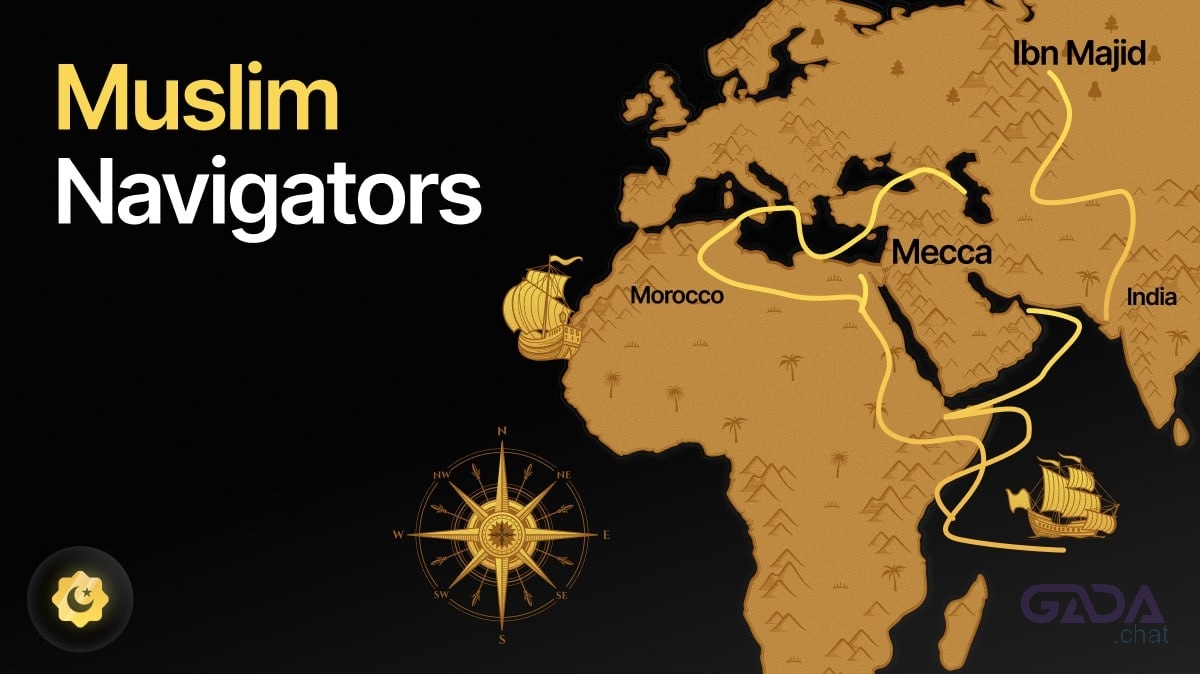When people die, we say: “Do not speak ill of the dead.”
But today, I ask one question: what of the living the dead ruined?
What of the lives they shattered?
The voices they silenced?
The dreams they wasted?
What if the dead ruled with cruelty and departed, leaving a trail of victims too damaged to ever recover?
What if their legacy is the reason some died untimely, violently, and unnecessarily in the first place?
Muhammadu Buhari is gone.
And once again, a bleeding nation is being asked to perform its most dangerous ritual: FORGET!
But I remember.
I remember citizens waving flags and singing the anthem
gunned down at Lekki Tollgate by soldiers, under his government that saw a demand for dignity as defiance.
The streetlights went off.
The cameras looked away.
The bullets rained down mercilessly on unarmed citizens!
He was Commander-in-Chief!
Families are still grieving. Many are still missing.
His government denied their murder.
They made us question the evidence of our own eyes.
They spat on our memory and dared us to forget.
I remember the Shi’ites
fathers, sons, women, children
dragged through dust, crushed under boots,
for daring to march and pray differently.
I remember the violent burial of justice
when DSS agents invaded judges’ homes at midnight, Gestapo-style,
without warrants, without shame, without consequence.
Till date, no justification.
And the judiciary never stood the same again.
I remember the hundreds of “repentant” Boko Haram terrorists he released back into society
with fanfare, jollof rice, sewing machines, starter packs, and smiles
while widows of slain soldiers clutched folded flags and death certificates.
While children from burnt villages grew up without homes,
without fathers,
without mothers,
without answers.
I remember the grievous collapse of the economy
the deepest plunge into abyss this nation had witnessed in recent history
while Buhari repeatedly abandoned the country, disappearing for weeks without remorse, without explanation.
As inflation soared, the Naira crumbled into disgrace, and food prices became horror stories,
he remained absent.
Absent while businesses folded.
Absent while the World Poverty Clock declared Nigeria the Poverty Capital of the World.
He watched from a distance, aloof, detached, unmoved
and whenever he spoke, it was either denial or pure condescension.
No strategy.
No empathy.
No shame.
I remember the wickedness of his final days in office
a Naira redesign wrapped in the disguise of reform,
announced without foresight,
without care for the poor, the sick, the elderly, or the rural.
People died not for lack of medicine,
but because they couldn’t use or access their money to purchase it.
Aged parents wept bitterly in the streets, under the hot sun,
for days that turned into weeks, because their own money was locked away.
And Buhari, the Chief Architect of that doomsday policy
the man under whose watch lives wasted like scraps of paper
was the single biggest beneficiary of public goodwill in our democratic history!
Yet they say, “Do not speak ill of the dead.”
Why?
Because he is now under the earth?
Was he not godlike in power while we suffered under his rule?
Since when did death become a bleach that wipes away how people lived?
Since when did dying canonize men who had no empathy for the living?
He died in London
not in Zaria, not in Enugu, not in Jos
but in a foreign hospital most Nigerians cannot even dream of, let alone afford.
And his media aide, Femi Adesina, looked Nigerians dead in the face and said,
"Buhari could have long died if he used Nigerian hospitals...due to lack of medical competence..."
The sheer cruelty of the Nigerian ruling class in full glare!
So, who should use Nigerian hospitals?
Who should suffer the lack of "medical competence"?
The aggrieved masses, from whom you now demand silence or empathy for the dead?
The one who ruled for 8 YEARS over bad hospitals, empty pharmacies, and unpaid doctors?
And when his time came, he fled, as usual, the very system he created.
He ran from his own legacy.
How many Nigerians can run from bad governance?
How many of you reading this can afford London clinics?
But again, they say: “Do not speak ill of the dead.”
Do not remember your pain.
Do not remember your trauma.
Do not remember the loved ones you buried.
Do not remember the blood that dried on our streets.
Do not remember your truth.
But I do remember.
And I will not be silent.
He governed like a ghost
distant, cold, silent
except when denying responsibility.
He left a nation poorer, angrier, and more broken than he met it.
He stole our time.
He wasted our growth.
He stifled our voice.
And now, they want to steal our memory too?
Nigeria is a tragedy dressed in resilience.
We are too forgiving.
Too adaptive.
Too FORGETFUL.
We hug trauma like tradition.
We laugh in hunger...in pain!
We move on too fast, too far, before our wounds even scab.
We’ve normalized cuddling and being ruled by people who do not love us.
Leaders who weaponize our silence.
Who live lavishly off our forgetfulness.
Who take and take and take
because they know:
When they die, we’ll still say “rest in peace.”
We’ll still honor their ignoble memory and whisper: “Don’t speak ill of the dead.”
And so we never name shame.
We never call wickedness exactly what it is.
We never hang failure around the necks of those who earned it.
And that is why it never ends.
That is why they never stop taking us for granted.
Let Buhari’s name NEVER be uttered with reverence.
Let his memory haunt the halls of power.
Let his people carry the burden of the name that emptied a nation.
Let every living and future president, governor, senator, judge, and minister know:
If you ruin lives, you will not be remembered in peace.
We will not lie for you.
We will not absolve you.
We will not let death whitewash your legacy.
We will not silence our truth for the comfort of your memory.
---
This post is about us.
About Nigeria.
And how we keep burying our trauma under the cloak of politeness.
We say: “Let the dead rest.”
But did the dead let us rest?
We say: "Respect the dead."
But did the dead respect the living?
We must stop confusing cowardice for civility.
We must stop mistaking silence for grace.
We must be comfortable with painful truth, demanding accountability, and having tough conversations!
We must make it clear:
To die in disgrace must be a warning to the living.
A nation that does not shame the wicked will keep giving birth to monsters.
I want a country
where our children have a future they can trust.
Where they look up to their leaders and not just up at airplanes far in the sky.
Where our brightest minds don’t flee to be second-class citizens elsewhere.
Where hospitals heal, not kill.
Where doctors and health personnel are well paid
and not told to go learn tailoring, like Buhari's own Health Minister once said,
without fear of any rebuke from his boss, the President!
Where leaders are true stewards, not shameless, heartless predators.
And if that future must begin with truth,
then let it begin here.
Buhari failed this country.
Spectacularly.
Shamelessly.
Fatally.
He squandered hope and enormous goodwill, the kind never seen before.
That is his legacy, and I will not pretend otherwise.
Because when death becomes a sweet deodorant for wickedness,
we teach the living that legacies don’t matter
and that is how nations die long before their people do.
And to those of you who say, “He’s gone now. Let’s move on. Let’s focus on our own legacy…”
I say: we cannot build clean legacies atop the graves of unaccounted wickedness.
To move forward without reckoning is not wisdom; it is willful amnesia. It is dangerous, faux morality!
The dead may be gone, yes. But their choices still live with us.
Their impact outlives their breath.
And the way we remember them tells the living what history will one day say of them too.
“Do not speak ill of the dead?”
Then, let the dead live better.
Let them lead with conscience,
remembering the day they'll take their final breath.
Enough of political correctness that earns us nothing.
Enough of false civility that brings us more chains and despair.
Enough of this culture of respectability we have pushed too far into sheer docility.
Let the dead rest, if they so deserve.
But let the truth never sleep.
My name is Ayo Atitebi, and I am my father's child!
Copied.
When people die, we say: “Do not speak ill of the dead.”
But today, I ask one question: what of the living the dead ruined?
What of the lives they shattered?
The voices they silenced?
The dreams they wasted?
What if the dead ruled with cruelty and departed, leaving a trail of victims too damaged to ever recover?
What if their legacy is the reason some died untimely, violently, and unnecessarily in the first place?
Muhammadu Buhari is gone.
And once again, a bleeding nation is being asked to perform its most dangerous ritual: FORGET!
But I remember.
I remember citizens waving flags and singing the anthem
gunned down at Lekki Tollgate by soldiers, under his government that saw a demand for dignity as defiance.
The streetlights went off.
The cameras looked away.
The bullets rained down mercilessly on unarmed citizens!
He was Commander-in-Chief!
Families are still grieving. Many are still missing.
His government denied their murder.
They made us question the evidence of our own eyes.
They spat on our memory and dared us to forget.
I remember the Shi’ites
fathers, sons, women, children
dragged through dust, crushed under boots,
for daring to march and pray differently.
I remember the violent burial of justice
when DSS agents invaded judges’ homes at midnight, Gestapo-style,
without warrants, without shame, without consequence.
Till date, no justification.
And the judiciary never stood the same again.
I remember the hundreds of “repentant” Boko Haram terrorists he released back into society
with fanfare, jollof rice, sewing machines, starter packs, and smiles
while widows of slain soldiers clutched folded flags and death certificates.
While children from burnt villages grew up without homes,
without fathers,
without mothers,
without answers.
I remember the grievous collapse of the economy
the deepest plunge into abyss this nation had witnessed in recent history
while Buhari repeatedly abandoned the country, disappearing for weeks without remorse, without explanation.
As inflation soared, the Naira crumbled into disgrace, and food prices became horror stories,
he remained absent.
Absent while businesses folded.
Absent while the World Poverty Clock declared Nigeria the Poverty Capital of the World.
He watched from a distance, aloof, detached, unmoved
and whenever he spoke, it was either denial or pure condescension.
No strategy.
No empathy.
No shame.
I remember the wickedness of his final days in office
a Naira redesign wrapped in the disguise of reform,
announced without foresight,
without care for the poor, the sick, the elderly, or the rural.
People died not for lack of medicine,
but because they couldn’t use or access their money to purchase it.
Aged parents wept bitterly in the streets, under the hot sun,
for days that turned into weeks, because their own money was locked away.
And Buhari, the Chief Architect of that doomsday policy
the man under whose watch lives wasted like scraps of paper
was the single biggest beneficiary of public goodwill in our democratic history!
Yet they say, “Do not speak ill of the dead.”
Why?
Because he is now under the earth?
Was he not godlike in power while we suffered under his rule?
Since when did death become a bleach that wipes away how people lived?
Since when did dying canonize men who had no empathy for the living?
He died in London
not in Zaria, not in Enugu, not in Jos
but in a foreign hospital most Nigerians cannot even dream of, let alone afford.
And his media aide, Femi Adesina, looked Nigerians dead in the face and said,
"Buhari could have long died if he used Nigerian hospitals...due to lack of medical competence..."
The sheer cruelty of the Nigerian ruling class in full glare!
So, who should use Nigerian hospitals?
Who should suffer the lack of "medical competence"?
The aggrieved masses, from whom you now demand silence or empathy for the dead?
The one who ruled for 8 YEARS over bad hospitals, empty pharmacies, and unpaid doctors?
And when his time came, he fled, as usual, the very system he created.
He ran from his own legacy.
How many Nigerians can run from bad governance?
How many of you reading this can afford London clinics?
But again, they say: “Do not speak ill of the dead.”
Do not remember your pain.
Do not remember your trauma.
Do not remember the loved ones you buried.
Do not remember the blood that dried on our streets.
Do not remember your truth.
But I do remember.
And I will not be silent.
He governed like a ghost
distant, cold, silent
except when denying responsibility.
He left a nation poorer, angrier, and more broken than he met it.
He stole our time.
He wasted our growth.
He stifled our voice.
And now, they want to steal our memory too?
Nigeria is a tragedy dressed in resilience.
We are too forgiving.
Too adaptive.
Too FORGETFUL.
We hug trauma like tradition.
We laugh in hunger...in pain!
We move on too fast, too far, before our wounds even scab.
We’ve normalized cuddling and being ruled by people who do not love us.
Leaders who weaponize our silence.
Who live lavishly off our forgetfulness.
Who take and take and take
because they know:
When they die, we’ll still say “rest in peace.”
We’ll still honor their ignoble memory and whisper: “Don’t speak ill of the dead.”
And so we never name shame.
We never call wickedness exactly what it is.
We never hang failure around the necks of those who earned it.
And that is why it never ends.
That is why they never stop taking us for granted.
Let Buhari’s name NEVER be uttered with reverence.
Let his memory haunt the halls of power.
Let his people carry the burden of the name that emptied a nation.
Let every living and future president, governor, senator, judge, and minister know:
If you ruin lives, you will not be remembered in peace.
We will not lie for you.
We will not absolve you.
We will not let death whitewash your legacy.
We will not silence our truth for the comfort of your memory.
---
This post is about us.
About Nigeria.
And how we keep burying our trauma under the cloak of politeness.
We say: “Let the dead rest.”
But did the dead let us rest?
We say: "Respect the dead."
But did the dead respect the living?
We must stop confusing cowardice for civility.
We must stop mistaking silence for grace.
We must be comfortable with painful truth, demanding accountability, and having tough conversations!
We must make it clear:
To die in disgrace must be a warning to the living.
A nation that does not shame the wicked will keep giving birth to monsters.
I want a country
where our children have a future they can trust.
Where they look up to their leaders and not just up at airplanes far in the sky.
Where our brightest minds don’t flee to be second-class citizens elsewhere.
Where hospitals heal, not kill.
Where doctors and health personnel are well paid
and not told to go learn tailoring, like Buhari's own Health Minister once said,
without fear of any rebuke from his boss, the President!
Where leaders are true stewards, not shameless, heartless predators.
And if that future must begin with truth,
then let it begin here.
Buhari failed this country.
Spectacularly.
Shamelessly.
Fatally.
He squandered hope and enormous goodwill, the kind never seen before.
That is his legacy, and I will not pretend otherwise.
Because when death becomes a sweet deodorant for wickedness,
we teach the living that legacies don’t matter
and that is how nations die long before their people do.
And to those of you who say, “He’s gone now. Let’s move on. Let’s focus on our own legacy…”
I say: we cannot build clean legacies atop the graves of unaccounted wickedness.
To move forward without reckoning is not wisdom; it is willful amnesia. It is dangerous, faux morality!
The dead may be gone, yes. But their choices still live with us.
Their impact outlives their breath.
And the way we remember them tells the living what history will one day say of them too.
“Do not speak ill of the dead?”
Then, let the dead live better.
Let them lead with conscience,
remembering the day they'll take their final breath.
Enough of political correctness that earns us nothing.
Enough of false civility that brings us more chains and despair.
Enough of this culture of respectability we have pushed too far into sheer docility.
Let the dead rest, if they so deserve.
But let the truth never sleep.
My name is Ayo Atitebi, and I am my father's child!
Copied.











